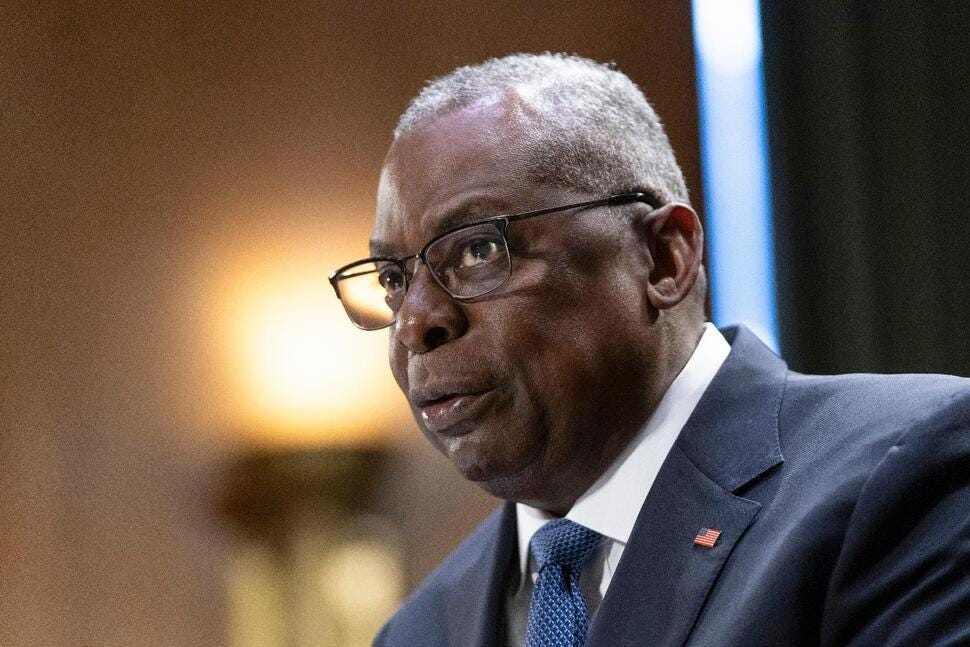Defense Secretary Austin's Health Raises Questions Amidst Lack of Transparency
A Closer Look at the Secrecy Surrounding Pentagon Chief's Medical Situation.

I. Introduction
Amidst controversy and questions surrounding Secretary of Defense Lloyd Austin's undisclosed hospitalization, President Biden maintains his trust in Austin's leadership. However, the lack of transparency has raised concerns about handling key information, especially during a period of heightened global security challenges.
II. Presidential Support and a Veil of Secrecy
Despite the hospitalization and a subsequent elective procedure, President Biden stands by Secretary Austin, showing no inclination towards accepting any resignation offers. The White House reiterates its confidence in Austin's leadership, emphasizing his anticipated return to the Pentagon.
III. A Closer Look at Austin's Health Situation
As of late Sunday, Secretary Austin remains at Walter Reed National Military Medical Center, recovering from an undisclosed medical procedure. The Pentagon assures the public that he is in good spirits, but the lack of a specific release date raises questions about the severity of his condition.
IV. Criticisms and Congressional Oversight
The Pentagon and Secretary Austin face criticism for the delayed disclosure of his illness. Members of Congress, including the Democratic and Republican heads of the House Armed Services Committee, expressed concern about the lack of transparency, demanding additional details about Austin's health and the decision-making process.
V. Unraveling the Timeline
The timeline of events leading to Austin's hospitalization reveals a complex picture. From an elective procedure on December 22 to severe pain on January 1, the details remain shrouded in secrecy. The lack of timely notification to key officials, including Deputy Secretary of Defense Kathy Hicks, adds to the growing scrutiny.
VI. National Security Implications
Despite assurances that Austin's hospitalization didn't jeopardize national security, questions linger about the potential impact on military operations. With ongoing tensions in the Middle East, including strikes against Iran-backed militias, concerns arise about the Pentagon's ability to function effectively during such a critical period.
VII. Reviewing Notification Protocols
In response to the unfolding situation, National Security Council spokesman John Kirby anticipates a review of the protocols for notifying the White House. Acknowledging the need for transparency, he hints at thoroughly examining processes to avoid repeating the current controversy.
VIII. Conclusion
The health issues surrounding Secretary Austin have ignited a broader debate about transparency, decision-making protocols, and the delicate balance between national security and public awareness. As the Pentagon faces calls for greater openness, the unfolding events prompt a reevaluation of procedures to ensure a more transparent and accountable defense leadership.


